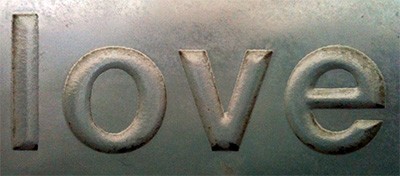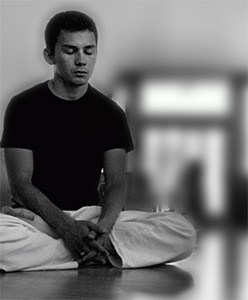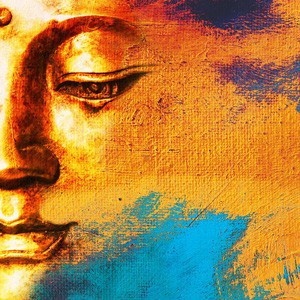Opening up to love
By L. B.

I just finished reading the book Teachings on Love by Thich Nhat Hanh, a Zen monk from Vietnam who heads a sangha in France called Plum Village. At times while reading this book, I would find myself wanting to skip certain pages that talked about things dealing with loving kindness, and that really disturbed me. As I started looking back over my life, I found that this was not the first time that I had done this and it has taken me a while to come to a realization of just why I was doing this.
I met my biological father for only the second time in 42 years (the first time was for five minutes when I was 15 years old, and as I recall, it did not go well). This second meeting took place in the county jail at a time in my life when I had given up on the free life, gone on a crime spree, and received 35 years flat time. Needless to say, it was a very low point in my life.
I mention this meeting with my father for two reasons: first, because I think it’s important to share painful times in our lives as a way to negate their power over us, and second, shortly after this meeting my biological father met with my mother, and at that time he told her that the men in my family wore their emotions on their sleeves, but were not capable of love. I had always worn my emotions on my sleeve, and up until that time, cultivating love and compassion towards others or myself had pretty much proven unobtainable.
Now, here I am feeling repulsed when I read parts of Thich Nhat Hanh’s book and ask myself, “Am I capable of love?” Since that day with my father, I have added 17 more years to that 35, and I think that now more than ever I need to be a loving and compassionate person.
Most of the people in prison—myself included—have to put on a mask in order to survive in a place where your peers reward you for aggressive and abnormal behavior. When you spend your days and nights worrying about what little you have or planning who you are going to smash next so you can keep your reputation fresh in everyone’s mind, you don’t have much time to cultivate loving kindness. At least that is what I thought. But I do not believe that today.
I came to realize that the reason I was allowing myself to feel repulsed and not allowing myself to feel compassion or show love is because it is so painful for me to let my emotions flow and to open my heart to being vulnerable. When I hate or have feelings of anger, I am able to keep all other feelings away, and therefore, it is easy to keep at bay the hurt that compassion and love bring.
That may sound confusing to you, but let me explain. When I open my heart to feel compassion towards others and when I show them love and kindness, I have to acknowledge within myself all the pain and misery that I have caused others. No one likes to think of themselves as a bad person, someone who is uncaring and inconsiderate of what harm they bring to others. Yet, that is exactly what I have been doing to others and that is exactly what I am when I am doing it to others.
But, when I see myself as only these actions or as only that type of person, the pain and misery is so intense that I shut down to all emotions except those that cover up the pain. What I am actually doing is keeping myself from being able to heal and grow. I prevent myself from watering the seeds of love and compassion within me.
I believe that I am being selfish when I refuse to open my heart and acknowledge my hurt towards others and when I allow myself to be uncaring and inconsiderate to mask my own pain. I am also refusing to face my fear of pain by examining those things that I have done to harm others, and I am only perpetuating the cycle that keeps me in a stagnant world of self abuse and suffering.
I think, too, that I have gotten comfortable in the selfish lifestyle of “me,” and some times I have to laugh when I catch myself doing this, because there isn’t really a “me” at all—it’s only an illusion! We are all connected. We are all the same. From the tadpole in the pond to the king on a throne, from the peasant in the field to the people in prison on their bunks, we are all one and the same. And, when you see this, any harm that you cause others you are doing to yourself.
In the opening chapter of Thich Nhat Hahn’s book Commentary on the Heart Sutra, he states:
If you are a poet, you will see clearly that there is a cloud in this sheet of paper. Without a cloud there would be no rain; without rain the trees cannot grow; and without the trees we cannot make paper. The cloud is essential for the paper to exist. If the cloud is not here, the sheet of paper cannot be here either. So, we can say that the cloud and the paper inter-are. Inter-being is a word that is not yet in the dictionary. But, if we combine the prefix “inter” with the verb “to be,” we have a new verb “inter-be.” Without a cloud we cannot have paper, so we say that the cloud and sheet of paper “inter-are.”
If we look into this sheet of paper even more deeply, we can see the sunshine in it. If the sunshine is not here, the forest cannot grow. In fact, nothing can grow. Even we cannot grow without sunshine. And so, we know that the sunshine is also in this sheet of paper. The paper and the sunshine “inter-are.” If we continue to look, we can see the logger who cut the tree and brought it to the mill to be transformed into paper. And, we see the wheat, we know that the logger cannot exist without his daily bread, and therefore, the wheat that became his bread is also in the sheet of paper. When we look in this way, we see that without all these things, this sheet of paper cannot exist.
Looking even more deeply, we can see that we are in it, too. This is not difficult to see, because when we look at a sheet of paper, the sheet of paper is part of our perception. Your mind is in here also so we can say that everything is here within this sheet of paper. You cannot point out one thing that is not in here—time, space, earth, the rain, the minerals, in the soil, the sunshine, the cloud, the river, the heat. Everything co-exists with this piece of paper.
You cannot just be by yourself alone. You “inter-are” with everyone and everything. So, when you do something hurtful to one, you do it to yourself. And likewise, when you love someone and show them compassion, you are loving and caring and showing compassion to yourself.
So, the next time you’re feeling like being hurtful to someone else, reach out to them and show them love and compassion. In doing so, you will find that you are giving yourself a great big hug.
Incarcerated people
Many incarcerated people from all over the United States correspond with Venerable Thubten Chodron and monastics from Sravasti Abbey. They offer great insights into how they are applying the Dharma and striving to be of benefit to themselves and others in even the most difficult of situations.


